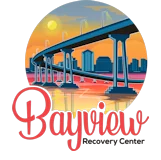LGBTQ Addiction Treatment in San Diego
Individuals within the LGBTQ+ community are acutely aware of the challenges they face in navigating the world. Those who openly express their sexual identity often find themselves perceived as different, while those who hesitate to share their identity may experience ongoing anxiety and discomfort from concealing their true selves. The stigma and judgment directed at minority communities permeate nearly every aspect of their lives, affecting their careers, family dynamics, civil rights, financial security, and particularly their mental health.
Unbeknownst to many, structural and systemic barriers have rendered you and others within the LGBTQ+ community more susceptible to mental health challenges and substance abuse. Individuals identifying as part of the “sexual minority” are twice as likely to have engaged in illicit drug use over the past year, and federal statistics reveal that LGBTQ+ individuals are considerably more prone to developing substance use disorders (SUD) than their heterosexual counterparts.
Your gender identity or sexual orientation should not hinder your recovery, health, or overall quality of life. In addition to providing a variety of treatment programs and levels of care, Bayview Recovery Center in San Diego, California, offers LGBTQ substance abuse treatment programs for men.
We’re committed to offering a safe, nurturing, and supportive environment for you or your loved one to overcome addiction. Here, you will receive the compassionate clinical care and understanding necessary to begin reclaiming your life and future.
Risk Factors of Substance Abuse in the LGBTQ Community
Substance abuse within the LGBTQ+ community is influenced by a complex interplay of social, psychological, and environmental factors. Many LGBTQ+ individuals face minority stress, a term describing the chronic stress caused by discrimination, prejudice, and internalized stigma.
This stress can lead to self-medication with drugs or alcohol as a way to cope with anxiety, depression, and feelings of isolation. Additionally, family rejection is a major contributor. LGBTQ+ youth who experience familial disapproval are significantly more likely to develop substance use disorders. The American Psychiatric Association (APA) and the National Institute on Drug Abuse (NIDA) identify various risk factors that increase the likelihood of drug or alcohol abuse. Several factors likely contribute to the heightened risk of substance abuse among gay men compared to heterosexual men, including:
- Genetic predispositions
- Early exposure to substance use within the family
- Diagnosis of mental health disorders unrelated to substance use
- Association with peers who regularly consume drugs or alcohol
- Backgrounds of poverty
- Social exclusion: Many LGBTQ+ individuals struggle with loneliness due to societal rejection, leading to higher rates of alcohol and drug use in social settings.
- Trauma: Experiences of bullying, hate crimes, or sexual violence increase vulnerability to addiction.
- Barriers to Healthcare: Fear of discrimination prevents many from seeking help, worsening substance dependency.
It is important to acknowledge that your needs in addiction treatment may differ from those of others. You may be grappling with co-occurring trauma linked to your identity or experiencing depression due to familial estrangement. It’s important to recognize the unique substance abuse risk factors individuals in the LGBTQ+ community face and how specialized treatment programs can benefit these individuals.
Regardless of the factors that have contributed to and perpetuated your addiction, our dual-diagnosis treatment program is designed to assist you in addressing both your addiction and any underlying mental health conditions, such as depression, anxiety, trauma, PTSD, or bipolar disorder.
Whether part of the LGBTQ+ community, including those who are transitioning, we offer specific weekly sessions and 12-step meetings to provide specialized care and support from those who have experience in helping minority groups struggling with addiction. Understanding these factors is crucial in developing effective, affirming treatment that addresses the root causes of addiction.
How Is the LGBTQ+ Community Different From Other Populations?
- Experiences of physical, emotional, or sexual abuse
- Higher rates of childhood trauma: Many LGBTQ+ individuals experience bullying, familial rejection, or homelessness during adolescence, increasing susceptibility to addiction later in life.
- Social and legal discrimination: Workplace discrimination, lack of legal protections, and public stigma create chronic stress, leading some to turn to substances for relief.
- Lack of culturally competent care: Unlike Bayview, many treatment centers are not equipped to address LGBTQ+-specific issues, causing individuals to avoid seeking help.
Why Do Men in the LGBTQ Community Struggle With Addiction?
Research on the prevalence of substance abuse within the LGBT community is limited; however, existing studies suggest that the rates of substance abuse among gay and transgender individuals range from 20 to 30 percent, or even higher, in comparison to approximately 9 percent in the general population.
Alcohol abuse among gay and transgender individuals may reach as high as 25 percent, while the rate in the general population is between 5 and 10 percent. Additionally, the consumption of tobacco products is notably higher among gay individuals than their heterosexual counterparts, with some studies indicating a difference of up to 200 percent. Gay men are significantly more likely to use amphetamines, with estimates suggesting they are up to 12 times more likely than heterosexual men. Furthermore, the likelihood of gay men using heroin is nearly ten times greater than that of heterosexual men.
While these general risk factors apply to both gay and heterosexual men, gay men may face additional challenges that elevate their risk of substance abuse. These include the high levels of stress stemming from social discrimination, barriers within the healthcare system that deter gay men from seeking help for substance abuse, and targeted marketing by alcohol and tobacco companies that may leverage the link between substance use and sexual orientation.
Benefits of LGBTQ+ Substance Abuse Treatment
Specialized addiction treatment for the LGBTQ+ community provides crucial advantages that traditional rehab programs often lack. By addressing the unique challenges faced by LGBTQ+ individuals, these programs create a foundation for meaningful, lasting recovery.
Person-Centered Care
Every individual’s experience with addiction is shaped by their identity, trauma, and personal history. LGBTQ+-specific treatment plans are tailored to address issues like internalized homophobia, transphobia, and minority stress. This customized approach ensures that therapy aligns with each client’s needs, fostering deeper healing and self-acceptance.
Outside of LGBTQ-specific issues, personalized care plans address, they also confront other issues an individual has, whether related to their sexuality or not
Atmosphere of Honesty
Many LGBTQ+ individuals have faced judgment or dismissal in healthcare settings, making it difficult to open up about their struggles. In an affirming treatment environment, clients can speak freely about their sexuality, gender identity, and experiences without fear of bias. This honesty allows therapists to provide more effective, relevant care that targets the root causes of addiction.
Accepting, Judgment-Free Environment
Recovery is challenging enough without the added fear of discrimination or misunderstanding. Centers that offer LGBTQ+ treatment cultivate a space where clients are welcomed for who they are, and not pressured to conform. Feeling truly accepted reduces shame and isolation, which are major barriers to recovery. These programs can also give LGBTQ+ individuals a chance to connect with others in their community, who can fully understand their struggles related to their identity.
Counseling Services for Partners and Families
Addiction doesn’t just affect the individual—it impacts relationships with partners, family, and close friends. Specialized programs offer family therapy to educate loved ones on LGBTQ+ issues and repair strained connections. Strengthening these support networks is vital for long-term sobriety and emotional well-being.
Support from LGBTQ+ Peers
Group therapy with others who share similar life experiences creates a powerful sense of community and belonging. Hearing peers’ stories of resilience and recovery can inspire hope and reduce feelings of loneliness. This shared understanding fosters trust and accountability, key components of successful treatment.
By focusing on these benefits, LGBTQ+-affirming rehab programs empower individuals to heal not just from addiction, but from the societal and personal wounds that contributed to it.
LGBTQ+ Substance Abuse Treatment Programs
- Partial Hospitalization Program (PHP): PHPs provide structured, intensive treatment while allowing clients to return home each evening. This level of care includes daily therapy sessions, medical monitoring, and comprehensive addiction education.
- Outpatient Programs: Our flexible outpatient programs allow clients to maintain work or school commitments while receiving treatment. Clients participate in regular individual and group therapy sessions to support their recovery journey.
- Holistic Rehab: We complement traditional therapies with holistic approaches like yoga, meditation, and Reiki. These modalities help heal the mind-body connection and develop healthy coping mechanisms.
- Sober Living: Our transitional sober living homes provide a structured, substance-free environment for those completing treatment. Residents benefit from peer support, accountability, and gradual reintegration into daily life.
Many LGBTQ+ individuals struggle with co-occurring mental health conditions like depression, anxiety, or PTSD alongside substance abuse. Dual diagnosis treatment helps confront the root and intersection of these conditions. Our clinicians are trained in evidence-based therapies that simultaneously address addiction and these related disorders. By treating both conditions together, we help clients build a stronger foundation for lasting recovery.
LGBTQ+ individuals often carry deep wounds from discrimination, rejection, or violence that contribute to substance use. Our specialists utilize proven modalities like trauma-focused Cognitive Behavioral Therapy (CBT) or dialectical behavior therapy DBT) to help process these painful experiences. Healing from trauma reduces the need to self-medicate and empowers clients to move forward in their recovery journey.
Internalized shame about one’s LGBTQ+ identity can be a significant barrier to recovery. Our therapists specialize in helping clients overcome internalized homophobia/transphobia through affirmative psychotherapy. This process fosters self-acceptance and helps individuals develop pride in their authentic selves and grow their confidence.
The transition back to daily life after treatment can be particularly challenging for LGBTQ+ individuals. We provide a comprehensive aftercare program that includes connections to LGBTQ+-friendly sober living, therapists, and support groups. This ongoing support helps clients navigate challenges while staying committed to their recovery goals.
Our programs recognize that LGBTQ+ individuals need more than just addiction treatment – they need healing that honors their entire identity. By addressing the root causes of substance use in an affirming environment, we help clients build fulfilling, sober lives as their authentic selves.
LGBTQ Substance Abuse Treatment is Available at Bayview Recovery Center
Recovery starts with acceptance. We see you, we support you, and we’re here to help. If you or a loved one is struggling with substance abuse, it’s critical to seek help. Contact us to learn more about how Bayview Recovery Center can help you lead a better life, free from substance abuse. Don’t hesitate—a happier, healthier life is just a phone call away.

Alyssa is a licensed Clinical Social Worker and received her Master’s degree from San Diego State University. She has experience working with individuals in recovery of all ages for over eight years. Alyssa has also worked with at-risk homeless foster youth transitioning into independent living along with the families in the neonatal intensive care unit at UCSD.
